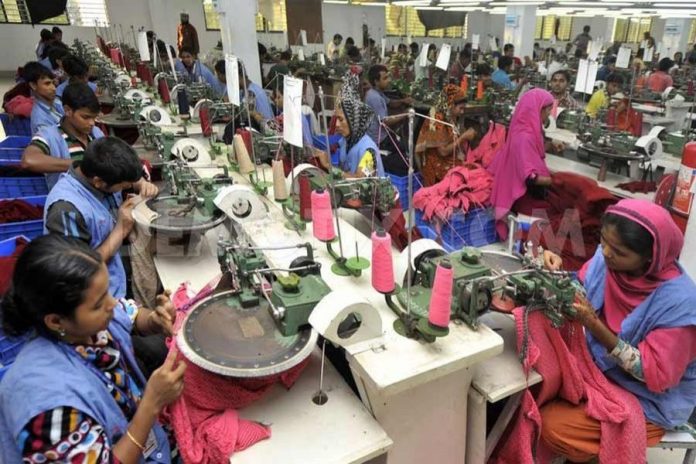A group of buyers engage in business simultaneously with more than 300 readymade garment (RMG) factories in Bangladesh, underscoring the industry’s major vulnerability, a survey found. Zara, H&M, Li & Fung and Walmart are the top four brands out of 3,600 retailers that had business during the last four years with around 300 Bangladeshi RMG factories.
KiK, C&A, Next, LPP, Kmart and Mango are the six brands that have been sourcing from more than 200 local garment factories. Lidl, Pep & Co, nkd, Matalan, JC Penny, Gap and Target are among the 11 brands that have business with more than 100 factories.
Data collected by Mapped in Bangladesh (MiB),which tracks export-oriented garment factories digitally, and the Centre for Policy Dialogue (CPD) found a total of 3,600 global brands, buyers and retailers have been sourcing locally RMG items from 3,211 export-oriented garment factories located in Dhaka, Gazipur, Narayanganj and Chattogram during last four years.
Experts said the dependence on a small number of buyers is a major weakness not only for small-scale enterprises but also for large factories, according to a report in a Bangladeshi newspaper.
Due to such dependency, exporters had no other option but to accept arbitrary demands like discounts, deferred payments and order cancellations during the pandemic.
There are 29 brands and retailers that have business with more than 50 but fewer than 100 factories and 175 buyers do business with five to 49 factories while more than 1,300 brands did business with a single factory, the MiB data showed.
According to the study, the majority or 86 per cent of the surveyed 610 factories said that brands or buyers did not take supportive measures for caring about workers’ health and financial peril of factories during the pandemic.
It also found the discontinuation of normal business ties with the buyers immediately after the pandemic, which it termed a ‘major challenge’ for suppliers.
Small and medium factories as well as Chattogram-based units were found to be behind in maintaining normal contacts.
Buyers and brands are supposed to maintain normal business contact particularly during the crisis period, discuss the issues and challenges confronted by the suppliers and try to provide predictability to the suppliers with regard to orders, prices and market situation, it said.
About a third of the factories alleged that at least some of their orders were cancelled and necessary payment was not made. Some 30 per cent factories reported that a section of buyers deferred shipment with timely payment while 20.5 per cent factories said buyers settled with deferred payment.
About 16 per cent factories claimed that buyers settled part of their orders at a reduced price and 1.8 per cent factories complained that buyers cancelled orders but agreed to pay the cost of raw materials.
The application of ‘force majeure’ clause in such incidences was widely discussed, the report said, adding a section of buyers reinstated the cancelled orders. Besides, some buyers filed for bankruptcy, which caused problems for local suppliers.
The report suggested that apparel trade bodies should encourage factories to diversify their buyers’ base by including not only large scale buyers but also small-scale brands.
Post time: Feb-03-2021






